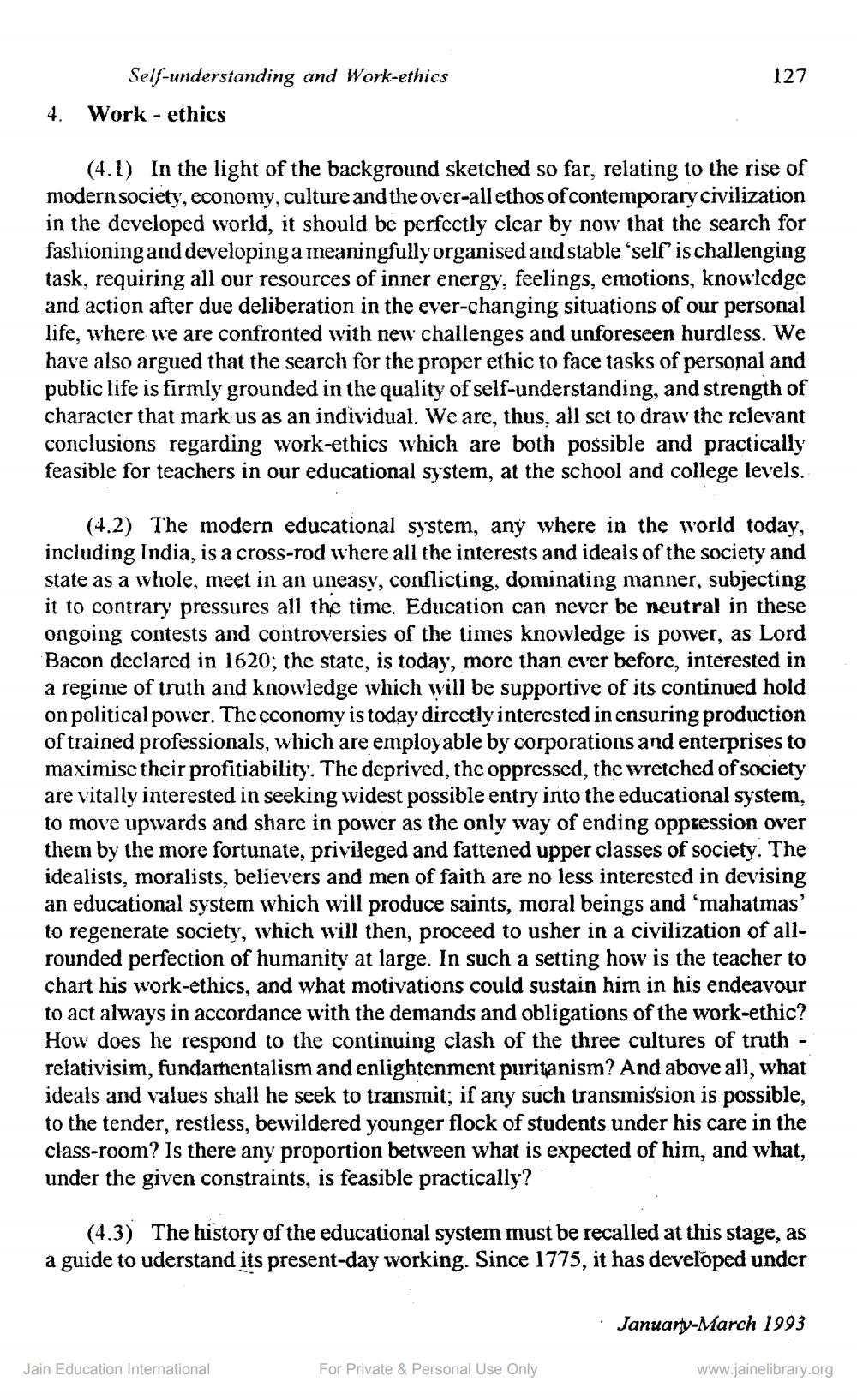________________
Self-understanding and Work-ethics
127
4. Work - ethics
(4.1) In the light of the background sketched so far, relating to the rise of modern society, economy, culture and the over-all ethos of contemporary civilization in the developed world, it should be perfectly clear by now that the search for fashioning and developing a meaningfullyorganised and stable ‘self" is challenging task, requiring all our resources of inner energy, feelings, emotions, knowledge and action after due deliberation in the ever-changing situations of our personal life, where we are confronted with new challenges and unforeseen hurdless. We have also argued that the search for the proper ethic to face tasks of personal and public life is firmly grounded in the quality of self-understanding, and strength of character that mark us as an individual. We are, thus, all set to draw the relevant conclusions regarding work-ethics which are both possible and practically feasible for teachers in our educational system, at the school and college levels
(4.2) The modern educational system, any where in the world today, including India, is a cross-rod where all the interests and ideals of the society and state as a whole, meet in an uneasy, conflicting, dominating manner, subjecting it to contrary pressures all the time. Education can never be neutral in these ongoing contests and controversies of the times knowledge is power, as Lord Bacon declared in 1620; the state, is today, more than ever before, interested in a regime of truth and knowledge which will be supportive of its continued hold on political power. The economy is today directly interested in ensuring production of trained professionals, which are employable by corporations and enterprises to maximise their profitiability. The deprived, the oppressed, the wretched of society are vitally interested in seeking widest possible entry into the educational system, to move upwards and share in power as the only way of ending oppression over them by the more fortunate, privileged and fattened upper classes of society. The idealists, moralists, believers and men of faith are no less interested in devi an educational system which will produce saints, moral beings and 'mahatmas to regenerate society, which will then, proceed to usher in a civilization of allrounded perfection of humanity at large. In such a setting how is the teacher to chart his work-ethics, and what motivations could sustain him in his endeavour to act always in accordance with the demands and obligations of the work-ethic? How does he respond to the continuing clash of the three cultures of truth - relativişim, fundamentalism and enlightenment puritanism? And above all, what ideals and values shall he seek to transmit; if any such transmission is possible, to the tender, restless, bewildered younger flock of students under his care in the class-room? Is there any proportion between what is expected of him, and what, under the given constraints, is feasible practically?
(4.3) The history of the educational system must be recalled at this stage, as a guide to uderstand its present-day working. Since 1775, it has developed under
January-March 1993
Jain Education International
For Private & Personal Use Only
www.jainelibrary.org




